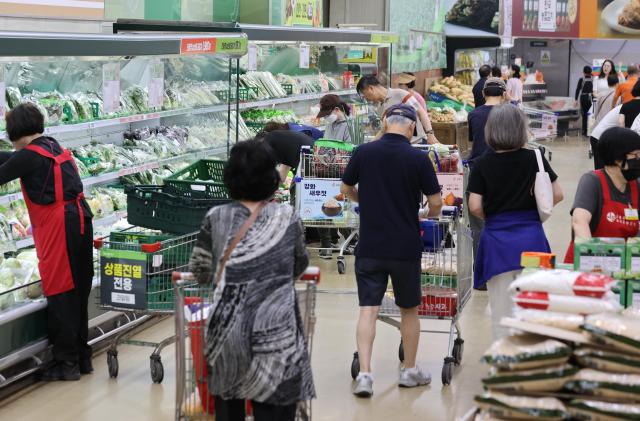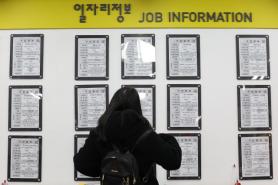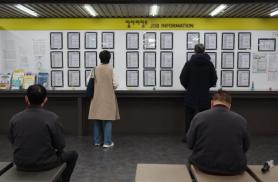
An index gauging the prices of food and non-alcoholic beverages, compiled by the KOrean Statistical Information Service (KOSIS), climbed to 125.75 last month, adding pressure on households already strained by rising costs including a recent hike in public transportation fees. The country’s overall inflation rate also rose to 2.1 percent.
Market watchers attribute the surge to this summer's unprecedented heat wave and torrential rains, which severely disrupted agricultural production, while processed food manufacturers pushed through a series of price hikes. Fishery and seafood products led the increase with a 7.2 percent spike, the steepest rise in two years.
Most staple foods that frequently appear on dining tables saw particularly sharp increases. Prices for dried squid rocketed 42.9 percent, while croaker and mackerel, both commonly consumed in many households, jumped 13.4 percent and 12.6 percent, respectively.
Rice, a dietary staple, rose 7.6 percent, the fastest increase since March 2024. Bread and cereal products surged 6.6 percent, seeing the highest increase in nearly two years, while instant noodles maintained a three-month streak of 6 percent. Confectionery and ice cream prices climbed 5 percent, while dairy products including milk, cheese and eggs rose 3.6 percent.
Adding to consumer woes, subway commuters in Seoul now have to spend more on transportation as the base fare increased by 150 won to 1,550 won (approximately US$1.12) since late June, pushing daily round-trip costs above 3,000 won.
Mounting costs across the board loom as the government considers raising electricity and gas bills in the second half, which would further squeeze household finances already grappling with higher food prices.
Copyright ⓒ Aju Press All rights reserved.




![[K-Food] South Korea showcases traditional liquor and cuisine at APEC food security meeting](https://image.ajunews.com/content/image/2025/08/09/20250809103210801945_278_163.jpg)
View more comments